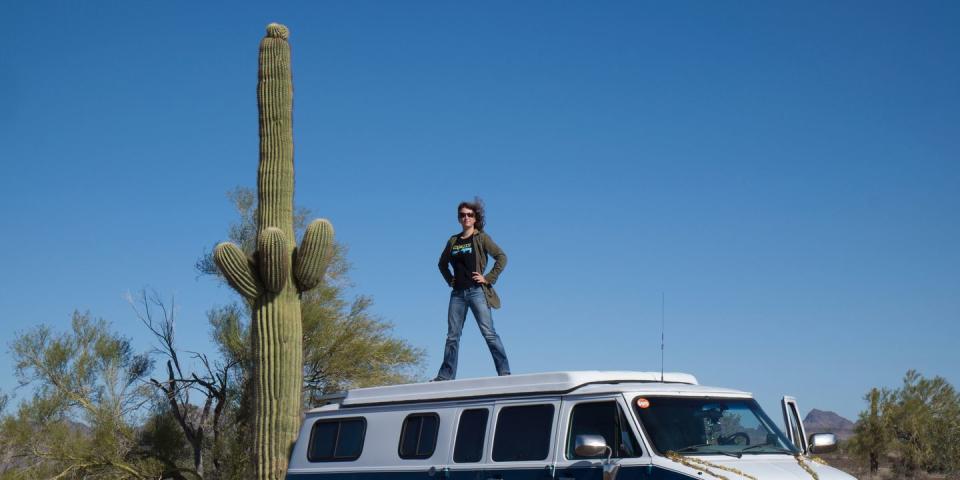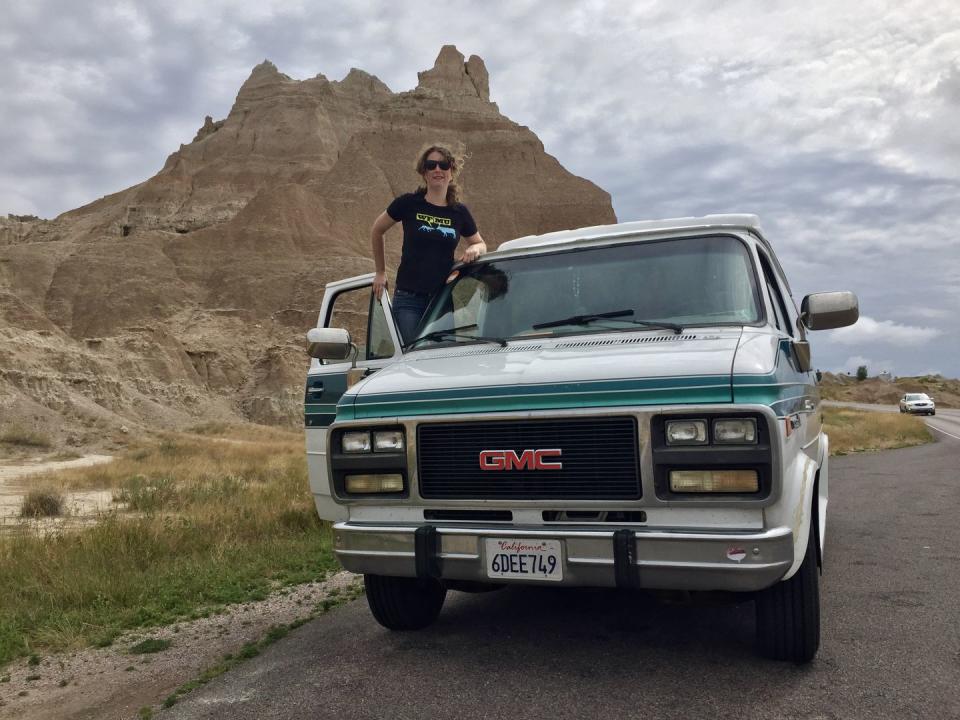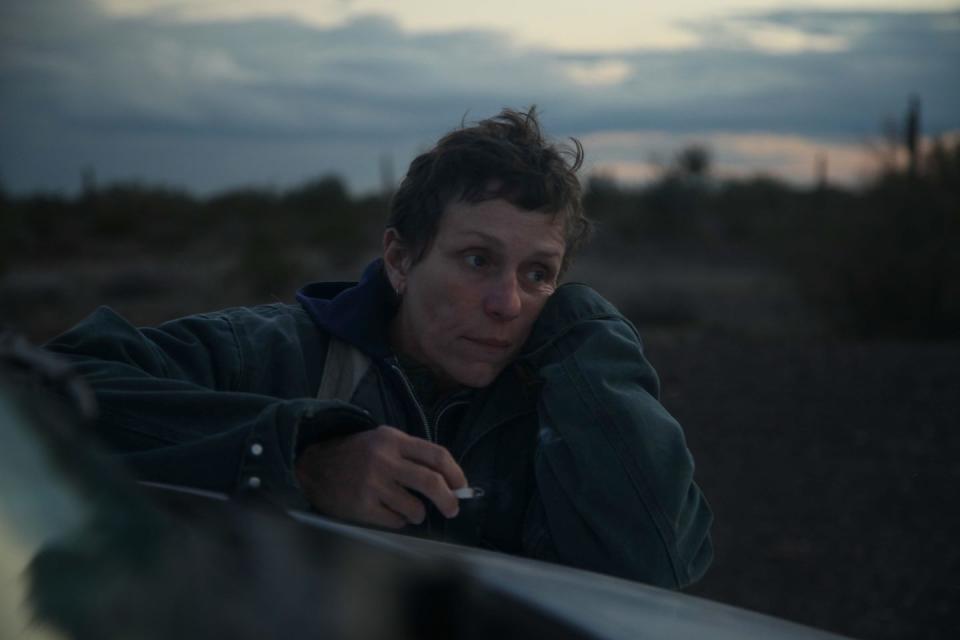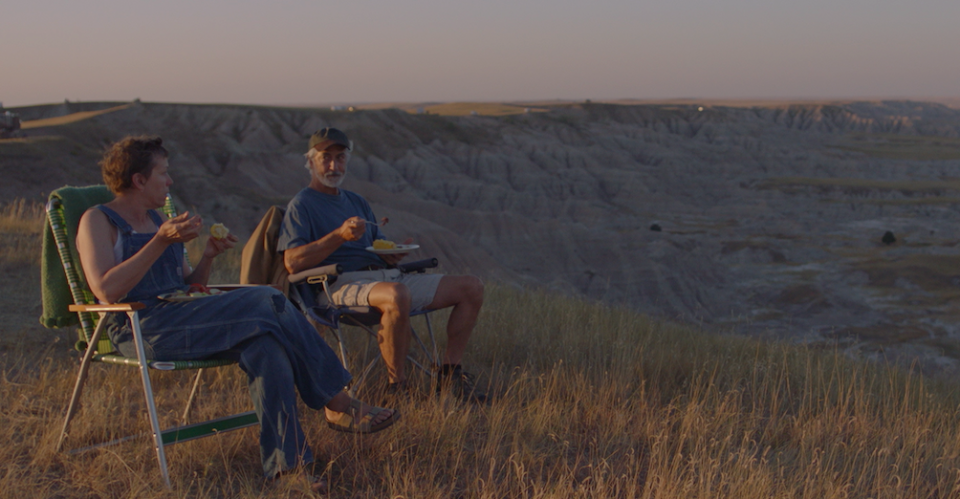Nomadland: Jessica Bruder details the the gritty true story behind the Oscar-winning film

“I knew it was bad when I would get back from the road and suddenly feel my apartment – a tiny one bed in New York - felt too big,” says Jessica Bruder. The America journalist is zooming me from that same apartment and, she’s right, it is tiny. But compared to the 19-foot van she drove across the country for nearly three years, anything would seem vast.
Back in 2014, Bruder was commissioned to write a story on the growing demographic of low-income Americans, many of them post-retirement age, most desperately affected by the 2008 financial crisis, living a nomadic lifestyle across the country. These characters were living in their cars and vans, eking out a living on menial shift work in roadside burger joints, camper van sites and the colossal factories of corporate behemoths like Amazon.

The story took on a life of its own and Bruder spun the narrative into a three-year-project and a much-lauded 2017 book, Nomadland: Surviving America in the Twenty-First Century which became – of course - a 2021 Oscar winning film starring Frances McDormand.
“It was a little scary to hand over material I'd spent many, many years working on with people I’d come to care about,” she says, “But for me, looking at Chloé Zhao’s past work, I just thought, she's a phenomenal chef. I've been gathering ingredients in my pantry for almost a decade. Now I'm going to put them on the table and she can cook what she wants with it. I trusted her and I love what she’s done with it.”
She seems pleasantly surprised by the film’s stratospheric success and still faintly bemused that it was adapted at all. “It's not an easy sell! It's not a book that you read it and say, 'oh, film that right away,'” she laughs, “I mean, it lacks anything Hollywood – there’s no sex, violence, not even loads of celebrities, besides Frances, who is magnificent. She doesn't need to blow the air out of the room to make a really beautiful scene. I don't know if anybody else could have done what she did.”

In fact, McDormand is the only big star attached and the film’s cast is populated largely – as is Chloé Zhao’s method – with ‘real’ people. Two of the women Bruder followed on the road – Linda May and Swankie – play themselves. This year, she packed them both off to the Oscars in April like a “proud mum on prom night”.
“It was so exciting to get them involved, especially Linda May, who really anchored the narrative for me in my book,” Bruder explains, “When Chloé asked if she would be good on screen I knew she would because the great thing about Linda is, whether she's talking to me or to her sister or to the clerk at the grocery store, she's the same person. She didn't turn it on for an interview, she just was naturally incredible. It made her a joy to follow around.”
Bruder’s time with Linda May and many others like her - the self-titled “Precariats” and “rubber tramps” - has clearly left a lasting imprint. These are women she is still in contact with, whose stories she is still invested in. Bruder says she misses life on the road and can’t wait to get back to her van (currently “ravaged by field mice” in her friend’s drive in Reno). Yet she is careful to call herself a 'fauxmad' not a nomad, and stresses that she punctuated her three years on the road with frequent trips back home, so that she could maintain a healthy-enough distance from the world of the 'Rubber Tramps' so as to be able to write about it objectively.

“Being with them every day was incredible and the only way to truly understand their way of life and how their community operates,” she explains. “When I'm doing immersion, I want to get close enough to really go in deep with something but not so close that I can't see it anymore. I didn’t want to get so used to it that I was adapting to it rather than observing it.”
Through her book, and through the faithful rendering of it on screen, you grasp this balance – both a profound respect for this way of life and a simmering critique of the society that has left many of these people will no other choice. For every great landscape shot in the film, there is a scene of ant infestations in vans or defecating in buckets, backbreaking work in factories or jobs cleaning toilets. As the subtitle of Bruder’s book suggests, this is a game of survival, not a gap year adventure.
“There is so much precariousness to life on the road. It can get heavy and scary,” she says. “I found it really difficult at times and I was essentially experiencing it as a tourist. It has only got harder for so many of these people during Covid when so many of things they rely on – free Wifi in coffee shops, showers in gyms - have been closed to them. When the government says ‘shelter in place’ or tells you to buy 30 days of food, and store it well, even if you can afford it, where are you going to put that food if you live in a van?”
The film’s success and audience is only growing post its Oscars sweep and Bruder hopes that, with that, will come a heightened awareness of the unforgiving nature of this way of life, and the merciless society that has abandoned so many of these people.
“The people that I met were so creative, and so resilient and, in so many cases, had found themselves in a system where they weren't given as many choices as they should,” she says. “In America, we tend to be very dismissive of people who haven't won in the great casino of the economy. We have this idea of the self-made human and it creates a lot of shame around poverty. It's incredibly corrosive, and we need to recognise that we are all in this together. It would be fantastic if this story can, in some small way, help in the fight to create a more equitable society.”
Nomadland is available to stream now on Disney +
In need of some at-home inspiration? Sign up to our free weekly newsletter for skincare and self-care, the latest cultural hits to read and download, and the little luxuries that make staying in so much more satisfying.
Plus, sign up here to get Harper’s Bazaar magazine delivered straight to your door.
You Might Also Like

 Yahoo Finance
Yahoo Finance 